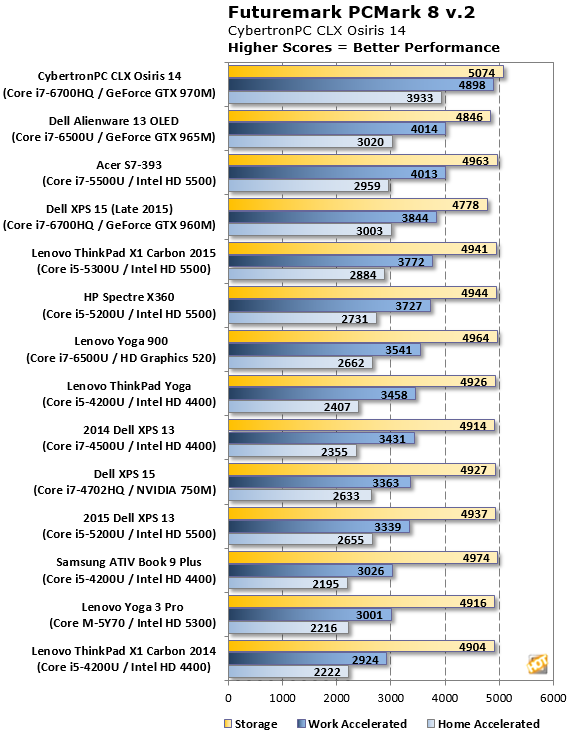Futuremark’s PCMark 8 runs the system through typical home and work
activities and provides individual scores for certain task categories,
rather than specific hardware. The Home test is just as it sounds: a
collection of everyday tasks, including web browsing and chatting. The
Work test is more demanding and has business-oriented tests, while the
laptop’s SSD gets a workout in the Storage test.
 |
PCMark 8 Benchmarks
|
Productivity And System-Level Benchmarking
|
|
We
selected three tests from the PCMark 8 benchmark suite: Home, Storage
and Work. Futuremark recently improved all three tests with PCMark 8
version 2. We selected the Open CL "Accelerated" options for both Home and Work.
The
CLX Osiris 14 continued its impressive run in PCMark 8, producing high
scores in each category. Laptops that have good SSDs tend to score in
the high 4,000’s in the Storage test, but the CLX Osiris managed to
break above the 5,000-point mark.
 |
3DMark Fire Strike Extreme
|
Synthetic DirectX Gaming And Graphics Testing
|
|
Futuremark
designed 3DMark Fire Strike for desktop PCs, but today’s heavy-duty
gaming laptops have the chops to take on the high-resolution texture,
tessellation and other components of the test. We put the CLX Osiris 14
up against a range of serious gaming laptops.
As demanding as
Futuremark’s flagship gaming benchmark is, the CLX Osiris 14 didn’t
flinch. It delivered a Graphics score of 3772, beating out the
comparison systems and providing an overall 3DMark score of 3634.
Let’s take a look at how the laptop fared in the games themselves…









